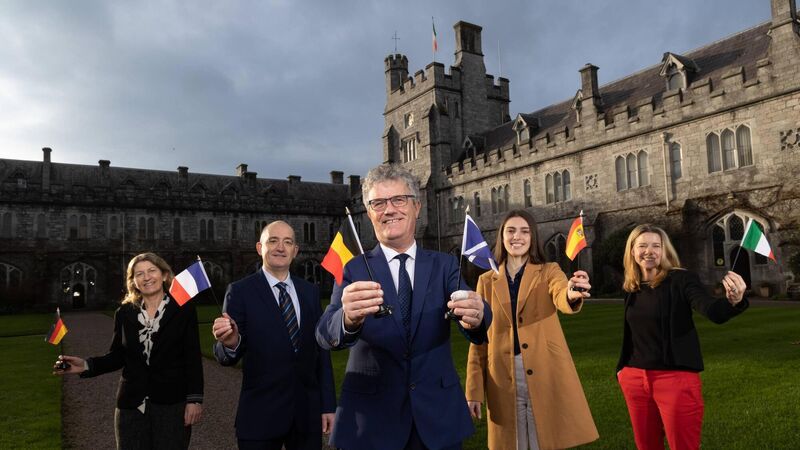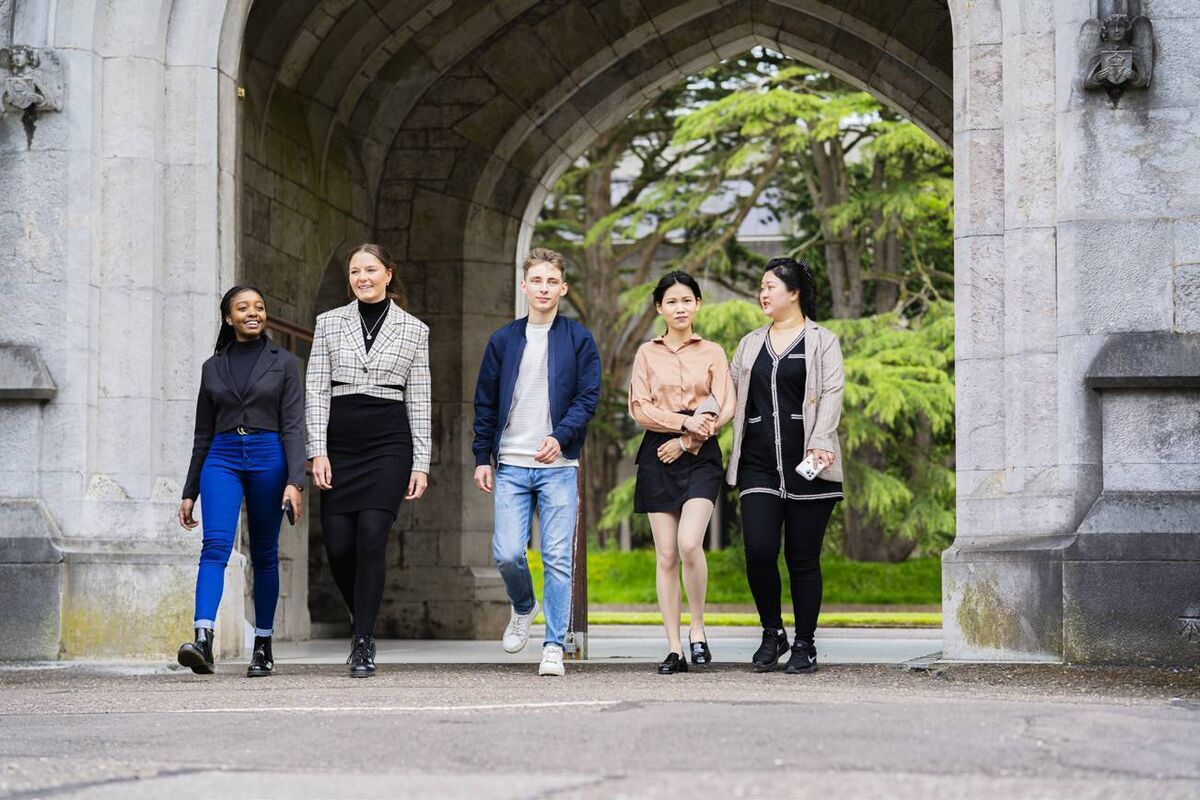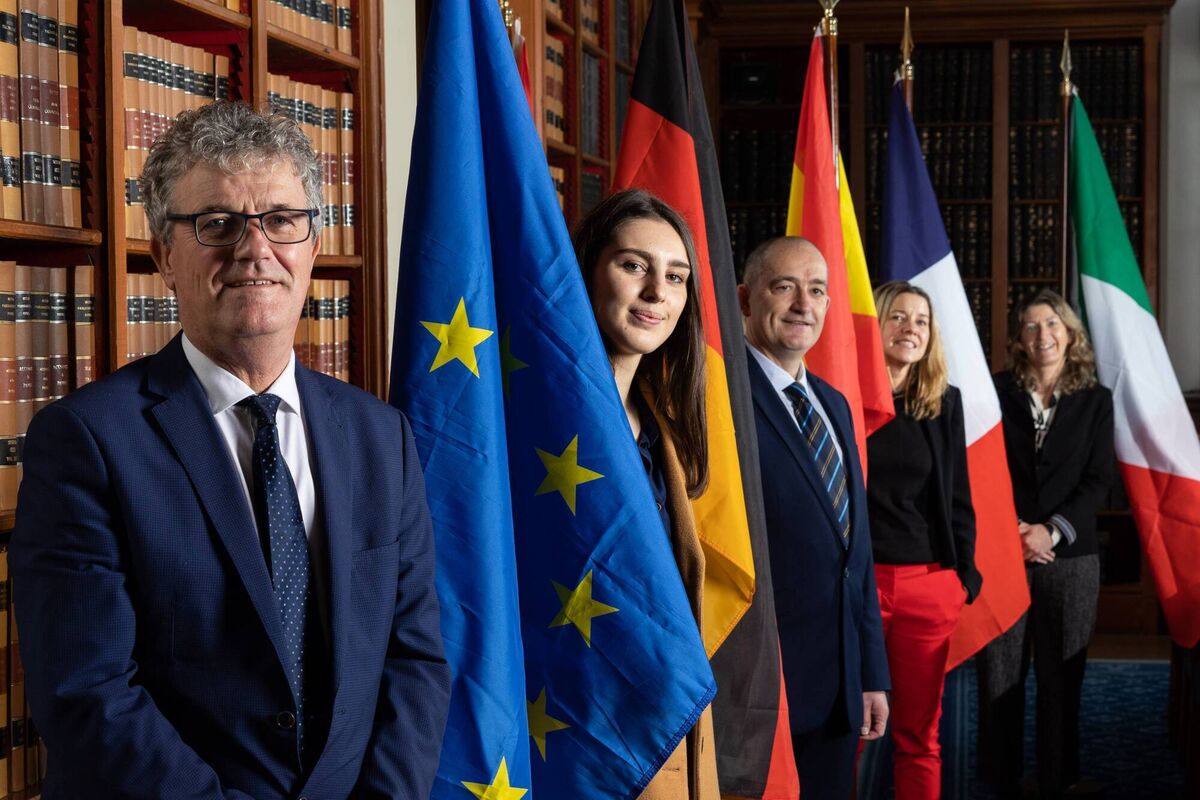New Business Programme at UCC for Post-Brexit and Post-Covid World

Pictured at the launch of the BSc International Business with Languages degree were Prof Ursula Kilkelly, Dr Declan Jordan, Prof John O’Halloran, Alina Buga, CUBS Student and Prof Thia Hennessy.
Cork University Business School at University College Cork has launched a new international business programme that will prepare students to play a leading role in shaping the post- Brexit, post-COVID global economy.
Specifically designed in response to the need for stronger foreign language and international business skills in the Irish workforce, the BSc International Business with Languages will provide graduates with the cultural intelligence to work with companies that are seeking to develop new export markets in the wake of Brexit.
Covering the broad scope of international business subjects, the four-year BSc International Business with Languages combines comprehensive business education with the study of a language and culture, including an immersive year studying abroad at a partner university.
By encouraging students to study the culture, politics, and language of the nations with which Irish businesses are increasingly trading, the programme will respond to an issue that has persistently been raised by employers.
Employers need graduates who can not only communicate effectively in new markets, but also have the cultural awareness and technical business skills to lead international projects. Ms Sinéad McSweeney, Vice President, Global Public Policy & Philanthropy at Twitter, welcomes the new programme.

“At Twitter, we’re on a journey to becoming the world’s most inclusive and diverse tech company. We’re headed in the right direction, but we’ve got a lot of work to do in order to continue our purpose of serving the public conversation. The need for graduates with an international mindset and the skills to help businesses grow in global markets will be heightened as the world continues to change rapidly and present new challenges on a daily basis. The ability to read signs and anticipate these changes makes all the difference and makes this new programme a welcome addition to UCC.
“Ireland is a very open economy, with high exports, inward foreign investment, and a critical role in global supply chains,” claims Dr Jordan. “Ireland needs graduates with an international mindset and the skills to help businesses succeed in increasingly complex markets”.
The elevation of Irish to an official language of the EU is an example of how cultural intelligence can play a role in shaping policy according to Dr Jordan. He notes that “to be employed in an EU body requires a proficiency in at least two official EU languages.
To progress requires fluency in three. As Irish is now an official EU language, a career within the EU is now open to a greater number of Irish people”. The new programme offers Irish as a language pathway, opening up potential for Irish graduates to avail of opportunities in EU institutions. “Post-Brexit, more Irish voices at policy-making levels in the EU will benefit Ireland hugely”, he claims.
To successfully influence future trade, environment, and finance policy, the next generation of Irish representatives will need to strike new alliances and deals with nations that have very few historic ties with Ireland.

By refusing to conflate language and culture, the programme looks beyond linguistic proficiency to ensure that graduates appreciate the zeitgeist that is driving the appetite for Irish goods and services in countries such as China and India.
Given the rapid growth of the middle-class population across the developing world, Dr Jordan believes that this will provide graduates with a significant advantage in the international jobs market.
The new programme chimes with Cork University Business School’s commitment to develop leaders for a sustainable future. It emphasises sustainable international business and ethical and responsible business.
Mr Jim Clarken, CEO of Oxfam Ireland, acknowledged that the new programme is part of a renewed focus in CUBS on promoting sustainable and responsible business models. “It is essential”, he argues, “that international business graduates appreciate the global impact of business decisions and are encouraged and enabled to consider how business can play a positive role in addressing climate change, inequality, and human rights across the globe”.








